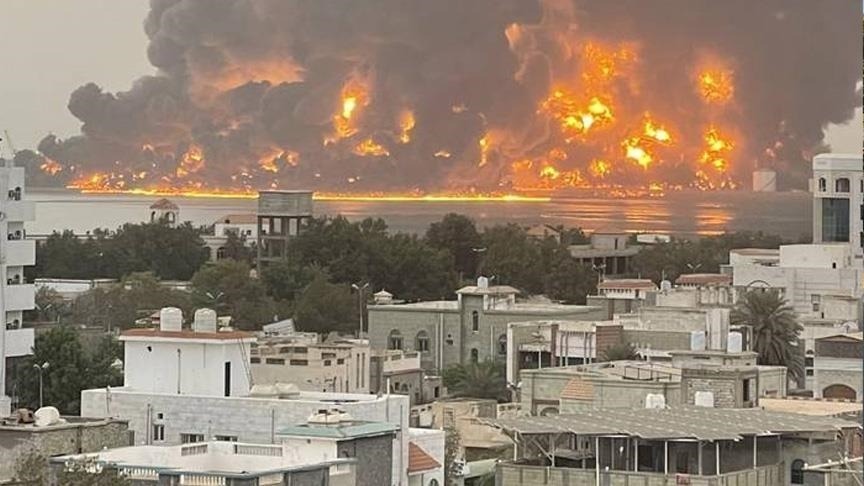


Barran Press - Reports Unit:
On the evening of December 26, 2024, Israeli forces launched a series of airstrikes on the Yemeni capital, Sana'a, and the coastal province of Al-Hudaydah, both controlled by the Iran-aligned Houthi movement, which is internationally designated as a terrorist organization. This marks Israel's fourth attack on Yemen this year, notable for being the most extensive, despite targeting only repeated civilian sites that bear no direct connection to Houthi military activities.
Yemeni military journalist and researcher Adnan Al-Jabarni wrote an analysis titled "Why Does Israel Bomb Civilian and Repeated Targets? How Do the Houthis View This Level of Escalation?" published on the platform X, as reported by Barran Press.
Al-Jabarni argues that the Houthi leadership is likely pleased that Israel has chosen to retaliate in a manner that aligns with their expectations. By targeting public infrastructure, Israel inadvertently aids the Houthis in their internal and external mobilization and boosts their legitimacy, shielding them from potential public isolation that might arise had Israel focused on eliminating Houthi leaders and military capabilities instead.
According to Al-Jabarni, the scale of these Israeli airstrikes does not impact the Houthis' ability to launch missiles and drones towards Tel Aviv, providing them with a sense of continuity and parity in their conflict. This allows the Houthis to claim victories that reinforce their desired image.
Al-Jabarni lists several points regarding how the Houthis may be using this situation to strengthen their defensive protocols and learn from Israeli tactics. He suggests that the Houthis are keen to solidify their role as a significant player in Iran’s regional strategy, especially during challenging times for Iran and its allies.
From Israel's perspective, Al-Jabarni posits several key factors driving their decision to escalate attacks against the Houthis:
Operational Readiness: Israel may be lacking comprehensive intelligence and logistical readiness. However, the recent uptick in Houthi attacks has pressured Israeli officials, prompting repeated strikes on public infrastructure as a means of gathering more data on Houthi operations and responses.
Deterrence: Israel aims to instill fear in the Houthis by targeting civilian infrastructure, which they perceive as vital for the Houthis' recognition and resources. Al-Jabarni argues that this understanding of Houthi responses is flawed, as the Houthis may not be as psychologically affected by the damage as Israel anticipates.
Training and Logistics: Israel is likely using these operations to test its logistical capabilities in a conflict of this magnitude and to evaluate various military formations and operational efficiency. This includes assessing their ability to coordinate aerial operations over long distances.
Hezbollah Model: Al-Jabarni suggests that Israel might be adopting a response strategy similar to its historical engagements with Hezbollah, implying that they could escalate their military response suddenly if deemed necessary.
Overall, the situation presents a complex interplay of military strategy, regional politics, and the ongoing conflict dynamics between the Houthis and Israeli forces.